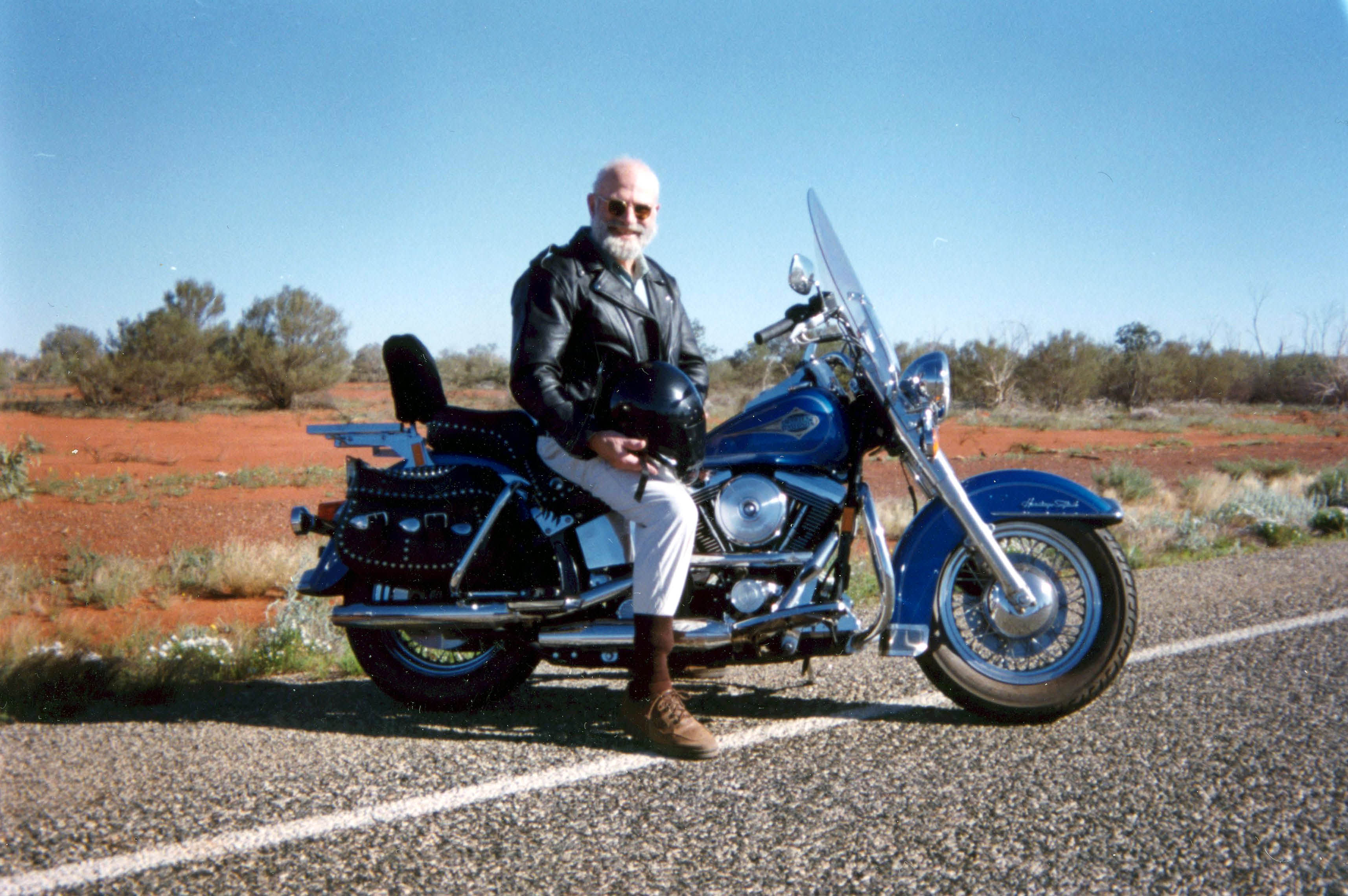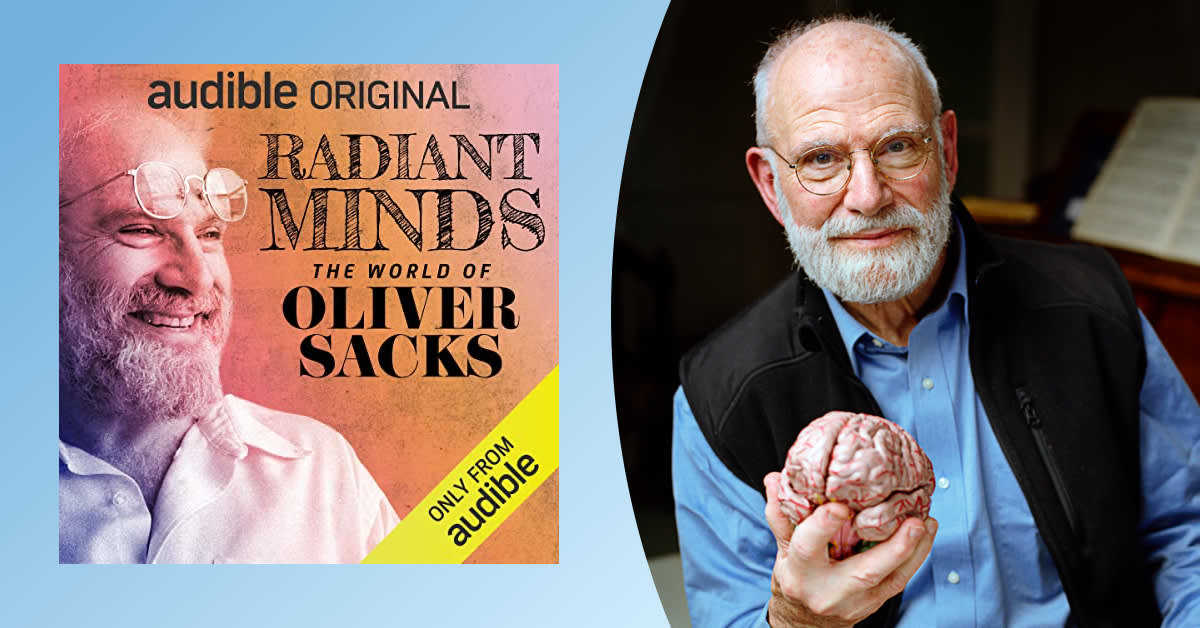Whether you first encountered him on screen, via Robin Williams’s iconic role in the film Awakenings, or via one of his many best-selling books, it’s likely that you felt an uncommonly strong affection for neuroscientist and storyteller Oliver Sacks.
My own introduction was The Man Who Mistook His Wife for a Hat, a collection of alternatingly astounding, disturbing, and somehow uplifting case studies of patients with baffling neurological conditions. First published in 1985, the book was enjoying one of its many resurgences of appreciation when I picked it up in the early 2000s. While I bounced between shock, horror, and ravenous curiosity over the clinical rarities Sacks described—from the titular character, whose visual agnosia disrupted the accurate processing of everyday objects, to folks with amnesia or trouble recognizing faces—it was the intelligent and intriguing narrative voice at the center of the stories that kept me riveted.
According to Sacks's longtime collaborator, neuroscientist and musician Indre Viskontas, the emotional draw of his stories—delivered with a tangible reverence for the science behind them—is a common response among those who hear them. “Oliver Sacks taught us how to see ourselves, and learn something surprising and profound, through the stories of people whose brains function differently,” she says. “So much of our lives is spent taking for granted that how we see the world, how we interact with it, is the same or similar for all of us, and we judge each other on that basis.”
Now, Viskontas continues to challenge that assumption as host of Radiant Minds: The World of Oliver Sacks. This Audible Original Podcast brings a new evolution of Sacks's legacy to his large audience—and in the process, introduces new listeners to his message of diversity, compassion, and outright awe at the incredible adaptability and complex mysteries of the human brain
Though not the first project to center on Sacks since his 2015 passing, at age 82, from cancer (Oliver Sacks: His Own Life, a posthumous documentary directed by Ric Burns, premiered in 2019), Radiant Minds represents a thrilling return to both the subject and style that made Oliver Sacks so beloved among fans and colleagues alike. Because in the stories he told, and the way he told them, Sacks made clear: he saw the person behind the condition. And each time he honored the humanity of his patients, paid homage to the individual overshadowed by their eccentricities and idiosyncrasies, Sacks seemed to be seeing each of us, in all of our remarkable variation.

Oliver on one of his beloved motorcycles, in Australia.
“Oliver has been called by some the godfather of neurodiversity,” says Kate Edgar, Sacks’s longtime editor, friend, and executive director of the Oliver Sacks Foundation. “And I am so proud of the ways in which this podcast embraces that aspect of his work. Empathy begins with imagining oneself in another’s shoes—all cultures and belief systems tell us this. There’s no such thing as one size fits all, and there’s no such thing as ‘neurotypical.’”
For each episode of Radiant Minds, Viskontas explains: “We wanted to put the person first. That’s why our tagline is ‘The story of the human brain, one person at a time.’ We didn’t want it to come off as a series of oddities or rare case studies; we wanted to illustrate something deeply profound through an individual’s experience, but buttress our discoveries with sound science.”
In this spirit, Radiant Minds is, like many of Sacks’s works, a collection of fascinating case studies firmly focused on the adaptability of each individual, with fascinating ramifications for not just neuroscience but art, music, the senses, consciousness, and reality itself. One episode explores how a man discovered his aphantasia, or complete lack of a “mind’s eye,” late in life—after he’d already revolutionized 3D-graphics and become the president of Pixar and Walt Disney Animation Studios. Another episode features the experiences of a multitude of people, spanning different generations, cultures, genders, and backgrounds, all living with Tourette’s. Along with exemplifying Sacks's human-first approach, the series explores the latest advances in neuroscience impacting the conditions he studied, from trauma to Parkinson’s.
“Oliver delighted in reading about new scientific discoveries,” Edgar says. “During his last year, knowing he would soon be gone, he often said one of his biggest regrets was that he would not be around to read about the latest breakthroughs in his favorite journals, Science and Nature.” One of the goals of the podcast is to incorporate exciting new research, often pioneered by up-and-coming neuroscientists who credit Sacks as their primary inspiration for entering the profession.
“It’s fascinating to hear from the younger neuroscientists in our show about those recent developments,” Edgar says. “The more we learn about the human brain, the more miraculous and wonderful it seems.”
The thrill of scientific discovery isn’t the only way that Radiant Minds channels Sacks’s approach. His voice—distinctive, British, energetic—is featured throughout the program, not only in original recordings but also deeply embedded within the narrative style and ethos of the script.
“Every time I felt stuck, when writing the episodes, I would reach up to the shelf above my desk and read a relevant chapter from one of Oliver’s books,” Indre Viskontas recalls. “Each time, I thought I knew the story, or at least, his take on it. And each time, I was surprised that there was something I had overlooked—some idea, sometimes small, sometimes major, that he had mused about or questioned or just observed—that would send me on the next path to discovery. It felt to me very much like an active collaboration.”
In fact, when she really hit a wall, Viskontas says, “I’d have a conversation with him—through his writings, or through Kate—and he’d help me get to the next stage. When I realized this was happening, I got very emotional, as it was always a dream of mine to work with him not just on a patient, which we did together, but in the craft of putting their story on the page.”
If the mechanics of caring for patients, studying neuroscience, and writing prose feel like wildly different skills, Kate Edgar ties it all back to how deeply Sacks valued individuals, and language itself.
“Oliver was a big believer in gratitude, empathy, and respect,” Edgar says. “While it’s true that each of us has a unique brain, we humans are also engineered to collaborate, to help one another. And we have a secret superpower: language, with which we can share and communicate, and respectfully disagree when we need to.”
That superpower goes both ways. Just as we speak our own truths, practicing listening to other voices is crucial to an empathetic understanding of each other’s often divergent—but always amazing—brains. The stories within Radiant Minds are a conduit not just for Sacks’s vibrant legacy but for compassion and a deeper appreciation of what makes us human.
Further listening
Both Edgar and Viskontas call this collection of case studies their very favorite of Sacks’s books. “It’s like a potpourri of the best of Oliver,” Viskontas says. “I always recommend it to people who want an introduction to his work.”
"For a deeper appreciation of Oliver’s life, his autobiography gives insight into a man at least as complex as any of the people he profiles in his books," Edgar says, calling On the Move "by turns tender and funny, wrenching and revealing."
“I would imagine, though I don’t know, that Oliver would have loved this nonfiction book by Sy Montgomery," Viskontas says. "He loved cephalopods, and she brings them to life.”





